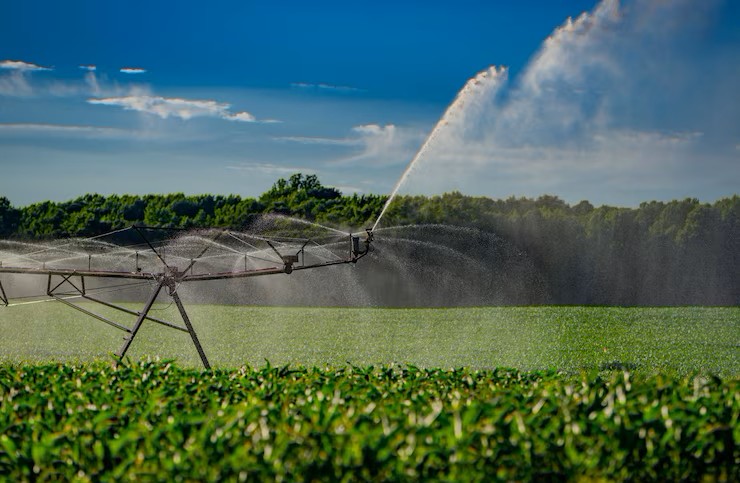Water is a critical resource, especially for agricultural, industrial, and commercial operations. In many countries, using water for anything beyond domestic purposes requires a water use license. If you’re planning to irrigate your farm, operate a fishery, or use water for manufacturing or mining, you may need to apply for one. This article outlines everything you need to know about how to apply for a water use license, including the process, requirements, and practical tips to improve your chances of approval.
What Is a Water Use License?
A water use license is a legal permit issued by a water authority or government agency that allows individuals or organizations to use water from rivers, lakes, groundwater, or other sources for non-domestic purposes. It ensures that water is used responsibly, sustainably, and in line with environmental protection laws.
When Do You Need a Water Use License?
You typically need a water use license if your activity involves:
- Irrigating crops or livestock farming
- Industrial processing or manufacturing
- Operating a fish farm or aquaculture project
- Constructing dams or diverting rivers
- Using boreholes or wells for large-scale water extraction
- Discharging waste or effluent into water bodies
Check with your local water authority or environmental agency to confirm if your activity requires a license.
Step-by-Step Guide to Applying for a Water Use License
Step 1: Understand Local Regulations
Each country or region has its own rules for water use. Visit the website or office of your national or local water authority, such as a Department of Water Resources, Water Management Authority, or Environmental Protection Agency. Get a copy of the water use regulations and licensing guidelines.
Step 2: Determine the Type of License You Need
Water use licenses may vary based on:
- Type of water source (surface water, groundwater, rainwater)
- Purpose of use (agricultural, industrial, municipal)
- Volume of water required
You’ll need to specify these details when filling out the application.
Step 3: Prepare Required Documentation
Typical documents required for a water use license application include:
- A completed application form (often downloadable from the agency’s website)
- Proof of land ownership or lease agreement
- Water demand estimates (daily, monthly, or seasonal usage)
- Environmental impact assessment (if applicable)
- Map or sketch of the site and water source
- Borehole drilling reports (for groundwater use)
- Business or project plan (for commercial use)
Check the specific list provided by your local authority, as requirements can vary.
Step 4: Submit the Application
You can usually submit the application online, by mail, or in person at a regional water office. Make sure to:
- Pay the required application fee (if applicable)
- Keep a copy of your application and receipt for future reference
- Ask for an acknowledgment or reference number
Step 5: Site Inspection and Review
After submitting your application, a technical officer may visit your site to:
- Verify the location and water source
- Assess the potential environmental and social impact
- Confirm the feasibility of the water use plan
This step is crucial for ensuring your application meets safety and sustainability standards.
Step 6: Await Feedback and Decision
The approval process may take anywhere from a few weeks to several months, depending on the complexity of your request and the responsiveness of the reviewing agency. During this period:
- Stay in contact with the water authority
- Respond promptly to any requests for additional information
- Be ready to make adjustments based on feedback
Step 7: Receive the License and Comply with Conditions
If your application is approved, you’ll receive a formal water use license with specific terms, such as:
- Maximum volume of water you can use
- Time period (e.g., 5 or 10 years)
- Monitoring or reporting requirements
- Environmental or conservation obligations
Make sure to adhere to all conditions to avoid penalties or revocation of the license.
Tips to Improve Your Chances of Approval
- Engage an expert: If your project is large or complex, hire a water consultant or environmental expert to assist with technical reports.
- Start early: The process can take time, so apply well before your intended project start date.
- Be transparent: Provide clear, accurate information and avoid underestimating your water usage.
- Consider water conservation: Show how your project will use water efficiently and protect surrounding ecosystems.
What Happens If You Use Water Without a License?
Using water without the required license can lead to:
- Fines or penalties
- Legal action
- Closure of your project or facility
- Environmental damage liability
Always check legal requirements before starting any water-related project.
Applying for a water use license is an essential step for anyone planning to use water for commercial, agricultural, or industrial purposes. By understanding your local laws, preparing the right documentation, and following the application process carefully, you can secure your license and operate your project legally and sustainably. Whether you’re a farmer looking to irrigate your crops or a business owner needing water for production, getting your license is a smart and responsible move.
Join 'Farmers Mag' WhatsApp Channel
Get the latest Farming news and tips delivered straight to your WhatsApp
CLICK HERE TO JOIN






